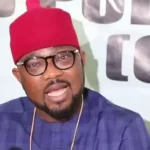Dutch Prime Minister Mark Rutte has resigned, as has his Cabinet, citing irreconcilable divisions within his four-party coalition over how to control migration.
The decision by the Netherlands’ longest-serving premier implies that the country will hold a general election for the 150-seat lower house of Parliament later this year.
Opposition lawmakers wasted no time in calling for fresh elections.
Rutte presided over late-night meetings on Wednesday and Thursday that failed to produce a migration policy agreement. More conversations were scheduled Friday evening, and he had declined to answer questions about the matter during his weekly press conference prior to the talks.
The discussions highlighted the coalition’s ideological divides between the partner parties that do not support a strict crackdown on migration.
The coalition tried for months to hash out a deal to reduce the flow of new migrants arriving in the country of nearly 18 million people.
Last year, hundreds of asylum-seekers were forced to sleep outdoors in squalid conditions near an overcrowded reception center as the number of people arriving in the Netherlands outstripped the available beds. Dutch aid agencies provided assistance.
Just over 21,500 people from outside Europe sought asylum in the Netherlands in 2022, according to the country’s statistics office. Tens of thousands more moved to the Netherlands to work and study.
The numbers have put a strain on housing that already was in short supply in the densely populated country.
Rutte’s government worked for a law that could compel municipalities to provide accommodations for newly arrived asylum-seekers, but the legislation has yet to pass through both houses of parliament.
The prime minister also promoted European Union efforts to slow migration to the 27-nation bloc. Rutte visited Tunisia last month with his Italian counterpart and the president of the EU’s executive commission to offer more than 1 billion euros in financial aid to rescue the North African nation’s teetering economy and to stem migration from its shores to Europe.
Rutte’s coalition government, the fourth he has led, took office in January 2022 following the longest coalition negotiations in Dutch political history.
Dutch Prime Minister Mark Rutte has resigned, as has his Cabinet, citing irreconcilable divisions within his four-party coalition over how to control migration.
The decision by the Netherlands’ longest-serving premier implies that the country will hold a general election for the 150-seat lower house of Parliament later this year.
Opposition lawmakers wasted no time in calling for fresh elections.
Rutte presided over late-night meetings on Wednesday and Thursday that failed to produce a migration policy agreement. More conversations were scheduled Friday evening, and he had declined to answer questions about the matter during his weekly press conference prior to the talks.
The discussions highlighted the coalition’s ideological divides between the partner parties that do not support a strict crackdown on migration.
The coalition tried for months to hash out a deal to reduce the flow of new migrants arriving in the country of nearly 18 million people.
Last year, hundreds of asylum-seekers were forced to sleep outdoors in squalid conditions near an overcrowded reception center as the number of people arriving in the Netherlands outstripped the available beds. Dutch aid agencies provided assistance.
Just over 21,500 people from outside Europe sought asylum in the Netherlands in 2022, according to the country’s statistics office. Tens of thousands more moved to the Netherlands to work and study.
The numbers have put a strain on housing that already was in short supply in the densely populated country.
Rutte’s government worked for a law that could compel municipalities to provide accommodations for newly arrived asylum-seekers, but the legislation has yet to pass through both houses of parliament.
The prime minister also promoted European Union efforts to slow migration to the 27-nation bloc. Rutte visited Tunisia last month with his Italian counterpart and the president of the EU’s executive commission to offer more than 1 billion euros in financial aid to rescue the North African nation’s teetering economy and to stem migration from its shores to Europe.
Rutte’s coalition government, the fourth he has led, took office in January 2022 following the longest coalition negotiations in Dutch political history.
Dutch Prime Minister Mark Rutte has resigned, as has his Cabinet, citing irreconcilable divisions within his four-party coalition over how to control migration.
The decision by the Netherlands’ longest-serving premier implies that the country will hold a general election for the 150-seat lower house of Parliament later this year.
Opposition lawmakers wasted no time in calling for fresh elections.
Rutte presided over late-night meetings on Wednesday and Thursday that failed to produce a migration policy agreement. More conversations were scheduled Friday evening, and he had declined to answer questions about the matter during his weekly press conference prior to the talks.
The discussions highlighted the coalition’s ideological divides between the partner parties that do not support a strict crackdown on migration.
The coalition tried for months to hash out a deal to reduce the flow of new migrants arriving in the country of nearly 18 million people.
Last year, hundreds of asylum-seekers were forced to sleep outdoors in squalid conditions near an overcrowded reception center as the number of people arriving in the Netherlands outstripped the available beds. Dutch aid agencies provided assistance.
Just over 21,500 people from outside Europe sought asylum in the Netherlands in 2022, according to the country’s statistics office. Tens of thousands more moved to the Netherlands to work and study.
The numbers have put a strain on housing that already was in short supply in the densely populated country.
Rutte’s government worked for a law that could compel municipalities to provide accommodations for newly arrived asylum-seekers, but the legislation has yet to pass through both houses of parliament.
The prime minister also promoted European Union efforts to slow migration to the 27-nation bloc. Rutte visited Tunisia last month with his Italian counterpart and the president of the EU’s executive commission to offer more than 1 billion euros in financial aid to rescue the North African nation’s teetering economy and to stem migration from its shores to Europe.
Rutte’s coalition government, the fourth he has led, took office in January 2022 following the longest coalition negotiations in Dutch political history.
Dutch Prime Minister Mark Rutte has resigned, as has his Cabinet, citing irreconcilable divisions within his four-party coalition over how to control migration.
The decision by the Netherlands’ longest-serving premier implies that the country will hold a general election for the 150-seat lower house of Parliament later this year.
Opposition lawmakers wasted no time in calling for fresh elections.
Rutte presided over late-night meetings on Wednesday and Thursday that failed to produce a migration policy agreement. More conversations were scheduled Friday evening, and he had declined to answer questions about the matter during his weekly press conference prior to the talks.
The discussions highlighted the coalition’s ideological divides between the partner parties that do not support a strict crackdown on migration.
The coalition tried for months to hash out a deal to reduce the flow of new migrants arriving in the country of nearly 18 million people.
Last year, hundreds of asylum-seekers were forced to sleep outdoors in squalid conditions near an overcrowded reception center as the number of people arriving in the Netherlands outstripped the available beds. Dutch aid agencies provided assistance.
Just over 21,500 people from outside Europe sought asylum in the Netherlands in 2022, according to the country’s statistics office. Tens of thousands more moved to the Netherlands to work and study.
The numbers have put a strain on housing that already was in short supply in the densely populated country.
Rutte’s government worked for a law that could compel municipalities to provide accommodations for newly arrived asylum-seekers, but the legislation has yet to pass through both houses of parliament.
The prime minister also promoted European Union efforts to slow migration to the 27-nation bloc. Rutte visited Tunisia last month with his Italian counterpart and the president of the EU’s executive commission to offer more than 1 billion euros in financial aid to rescue the North African nation’s teetering economy and to stem migration from its shores to Europe.
Rutte’s coalition government, the fourth he has led, took office in January 2022 following the longest coalition negotiations in Dutch political history.
Dutch Prime Minister Mark Rutte has resigned, as has his Cabinet, citing irreconcilable divisions within his four-party coalition over how to control migration.
The decision by the Netherlands’ longest-serving premier implies that the country will hold a general election for the 150-seat lower house of Parliament later this year.
Opposition lawmakers wasted no time in calling for fresh elections.
Rutte presided over late-night meetings on Wednesday and Thursday that failed to produce a migration policy agreement. More conversations were scheduled Friday evening, and he had declined to answer questions about the matter during his weekly press conference prior to the talks.
The discussions highlighted the coalition’s ideological divides between the partner parties that do not support a strict crackdown on migration.
The coalition tried for months to hash out a deal to reduce the flow of new migrants arriving in the country of nearly 18 million people.
Last year, hundreds of asylum-seekers were forced to sleep outdoors in squalid conditions near an overcrowded reception center as the number of people arriving in the Netherlands outstripped the available beds. Dutch aid agencies provided assistance.
Just over 21,500 people from outside Europe sought asylum in the Netherlands in 2022, according to the country’s statistics office. Tens of thousands more moved to the Netherlands to work and study.
The numbers have put a strain on housing that already was in short supply in the densely populated country.
Rutte’s government worked for a law that could compel municipalities to provide accommodations for newly arrived asylum-seekers, but the legislation has yet to pass through both houses of parliament.
The prime minister also promoted European Union efforts to slow migration to the 27-nation bloc. Rutte visited Tunisia last month with his Italian counterpart and the president of the EU’s executive commission to offer more than 1 billion euros in financial aid to rescue the North African nation’s teetering economy and to stem migration from its shores to Europe.
Rutte’s coalition government, the fourth he has led, took office in January 2022 following the longest coalition negotiations in Dutch political history.
Dutch Prime Minister Mark Rutte has resigned, as has his Cabinet, citing irreconcilable divisions within his four-party coalition over how to control migration.
The decision by the Netherlands’ longest-serving premier implies that the country will hold a general election for the 150-seat lower house of Parliament later this year.
Opposition lawmakers wasted no time in calling for fresh elections.
Rutte presided over late-night meetings on Wednesday and Thursday that failed to produce a migration policy agreement. More conversations were scheduled Friday evening, and he had declined to answer questions about the matter during his weekly press conference prior to the talks.
The discussions highlighted the coalition’s ideological divides between the partner parties that do not support a strict crackdown on migration.
The coalition tried for months to hash out a deal to reduce the flow of new migrants arriving in the country of nearly 18 million people.
Last year, hundreds of asylum-seekers were forced to sleep outdoors in squalid conditions near an overcrowded reception center as the number of people arriving in the Netherlands outstripped the available beds. Dutch aid agencies provided assistance.
Just over 21,500 people from outside Europe sought asylum in the Netherlands in 2022, according to the country’s statistics office. Tens of thousands more moved to the Netherlands to work and study.
The numbers have put a strain on housing that already was in short supply in the densely populated country.
Rutte’s government worked for a law that could compel municipalities to provide accommodations for newly arrived asylum-seekers, but the legislation has yet to pass through both houses of parliament.
The prime minister also promoted European Union efforts to slow migration to the 27-nation bloc. Rutte visited Tunisia last month with his Italian counterpart and the president of the EU’s executive commission to offer more than 1 billion euros in financial aid to rescue the North African nation’s teetering economy and to stem migration from its shores to Europe.
Rutte’s coalition government, the fourth he has led, took office in January 2022 following the longest coalition negotiations in Dutch political history.
Dutch Prime Minister Mark Rutte has resigned, as has his Cabinet, citing irreconcilable divisions within his four-party coalition over how to control migration.
The decision by the Netherlands’ longest-serving premier implies that the country will hold a general election for the 150-seat lower house of Parliament later this year.
Opposition lawmakers wasted no time in calling for fresh elections.
Rutte presided over late-night meetings on Wednesday and Thursday that failed to produce a migration policy agreement. More conversations were scheduled Friday evening, and he had declined to answer questions about the matter during his weekly press conference prior to the talks.
The discussions highlighted the coalition’s ideological divides between the partner parties that do not support a strict crackdown on migration.
The coalition tried for months to hash out a deal to reduce the flow of new migrants arriving in the country of nearly 18 million people.
Last year, hundreds of asylum-seekers were forced to sleep outdoors in squalid conditions near an overcrowded reception center as the number of people arriving in the Netherlands outstripped the available beds. Dutch aid agencies provided assistance.
Just over 21,500 people from outside Europe sought asylum in the Netherlands in 2022, according to the country’s statistics office. Tens of thousands more moved to the Netherlands to work and study.
The numbers have put a strain on housing that already was in short supply in the densely populated country.
Rutte’s government worked for a law that could compel municipalities to provide accommodations for newly arrived asylum-seekers, but the legislation has yet to pass through both houses of parliament.
The prime minister also promoted European Union efforts to slow migration to the 27-nation bloc. Rutte visited Tunisia last month with his Italian counterpart and the president of the EU’s executive commission to offer more than 1 billion euros in financial aid to rescue the North African nation’s teetering economy and to stem migration from its shores to Europe.
Rutte’s coalition government, the fourth he has led, took office in January 2022 following the longest coalition negotiations in Dutch political history.
Dutch Prime Minister Mark Rutte has resigned, as has his Cabinet, citing irreconcilable divisions within his four-party coalition over how to control migration.
The decision by the Netherlands’ longest-serving premier implies that the country will hold a general election for the 150-seat lower house of Parliament later this year.
Opposition lawmakers wasted no time in calling for fresh elections.
Rutte presided over late-night meetings on Wednesday and Thursday that failed to produce a migration policy agreement. More conversations were scheduled Friday evening, and he had declined to answer questions about the matter during his weekly press conference prior to the talks.
The discussions highlighted the coalition’s ideological divides between the partner parties that do not support a strict crackdown on migration.
The coalition tried for months to hash out a deal to reduce the flow of new migrants arriving in the country of nearly 18 million people.
Last year, hundreds of asylum-seekers were forced to sleep outdoors in squalid conditions near an overcrowded reception center as the number of people arriving in the Netherlands outstripped the available beds. Dutch aid agencies provided assistance.
Just over 21,500 people from outside Europe sought asylum in the Netherlands in 2022, according to the country’s statistics office. Tens of thousands more moved to the Netherlands to work and study.
The numbers have put a strain on housing that already was in short supply in the densely populated country.
Rutte’s government worked for a law that could compel municipalities to provide accommodations for newly arrived asylum-seekers, but the legislation has yet to pass through both houses of parliament.
The prime minister also promoted European Union efforts to slow migration to the 27-nation bloc. Rutte visited Tunisia last month with his Italian counterpart and the president of the EU’s executive commission to offer more than 1 billion euros in financial aid to rescue the North African nation’s teetering economy and to stem migration from its shores to Europe.
Rutte’s coalition government, the fourth he has led, took office in January 2022 following the longest coalition negotiations in Dutch political history.














